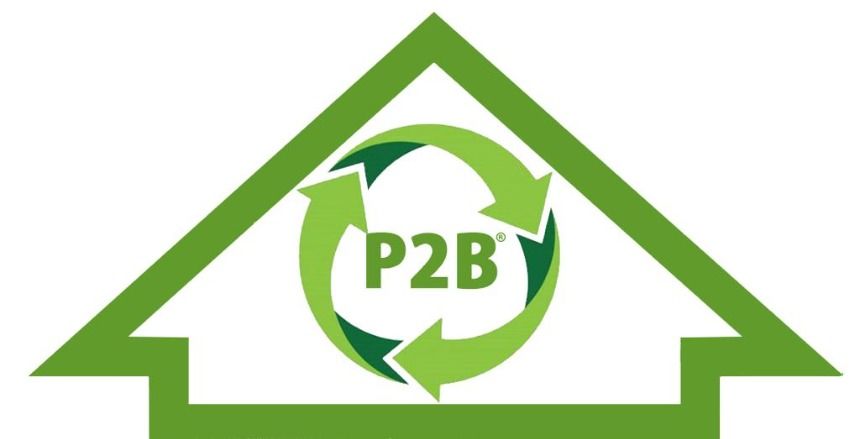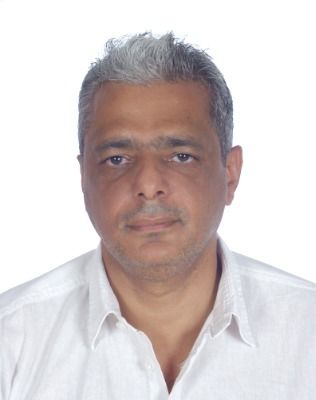Plastic 2 Build (P2B)
One impact investment initiative that aims to address plastic pollution, job creation and affordable housing while classifying Plastic waste as a resource.

Plastic 2 Build (P2B), a new initiative that aims to address plastic pollution, job creation and affordable housing in one impact investment and classifying waste as a Resource.
It is relatively cheap, energy efficient, scalable and modular processing 25 tons of plastic waste per day.
A start‐up innovative solution for the management of all types plastic waste by creating a market for plastic waste thereby building a supply chain leading to job creation, adding wealth to the basket of the masses, saving municipalities millions in collection and cleaning up of plastic litter and producing affordable and high specification building materials from 100% local materials, to be used for the construction of low-cost/affordable housing, saving much needed foreign exchange, in a scalable, sustainable and an environmentally friendly process with a potential to export the technology to the sub‐region.
P2B project addresses 7 UN SDGs:
We have a process {applying for Intellectual Property (IP)} that produces building blocks (Hollow and Solid), Pavement Tiles, Roof slabs, pre‐cast pillars and beams using all types of Plastic Waste, river sand and quarry stone as our raw material (NO CEMENT) to be sold 25% cheaper than existing products made of Cement while being twice as strong proven by compression Test. Biocrude(bio‐oil) is a by‐product.
BUSINESS MODEL
Premier Enviro Solutions Ltd's Management has devised a sustainable business model that would generate a decent profit while achieving the following social objectives:.
(i) To implement a formal sustainable business ecosystem project that will collect, recycle and process at least 30% of the estimated 100 Tons of all types of plastic waste generated daily into affordable products that can impact the lives of the those living on less than a dollar a day;.
(ii) Embark on an awareness campaign, “OPERATION PLASTIC”, to classify all Plastic Waste as a valuable resource, not a burden, thereby creating a market for what was previously dumped;.
(iii) Create jobs and, generate wealth through the collection of plastic waste, and encourage existing collectors, and agents and introduce new players into collection, including households;.
(iv) Engage with Communities and neighbor-hoods, making them part of the project and offer to build paved roads or social buildings utilizing our products.;
(v) Reduce scavengers at dumpsites, as they will collect plastics at source, thereby preventing them from exposure to disease as they will collect plastics at source
(vi) Reduce pollution and have a cleaner environment by improving Plastic waste collection and taking it away from streets, backyards, gutters, streams, rivers and, beaches, to prevent them from entering the ocean and discouraging burning, which emits toxins and ferns fumes that can lead to health illness and hazards such as dizziness, short breath and even cancer;.
(vii) Avoid the Plastic portion of Waste going into dumpsites, thereby expanding the life span of dumpsites;.
(vii) Increasing the country’s national GDP and reducing foreign exchange requirements, as products substitute imported raw materials and finished products.
KEY STAKE HOLDERS
The Project has 4 key stakeholders
1. The Buy Back Center’s, (BBC) objective is to secure a consistent supply of Plastic Waste for the plant. It will manage the Value Chain. The BBC will engage Educational Institutions/Schools and encourage students to fill Jumbo bags provided to them with Plastic Waste. A Recycling Fund will be set up for the institution/school. The Person in Charge at the school will inform BBC when the bags are full. , and The collection vehicle will verify load and the school’s recycling fund will be credited with $40 per ton. The BBC will engage factories that generate plastic waste and place Jumbo bags at their premises. The Person in Charge at the factory will inform BBC when the bags are full and the collection vehicle will verify load and the factory will be charged $40 per ton. In order to cover costs, the BBC will sell the baled Waste plastic to the Plant at $50/ton.
2. The Processing Plant will purchase baled its plastic waste from BBC at $50/ton and its other raw materials requirements i.e. river sand and granite stones from local suppliers and concentrate on processing and selling its’ products.
3. The OFF Takers
Building Contractors; / Building Materials outlets; / Low-Cost Housing;/ School and Hospital Construction Projects. They will purchase products produced by the Plant.
4. Government who, create the enabling environment for the eco system to thrive by introducing incentives and policy that attracts investments in recycling businesses and the use of products from local recycling manufacturers. Stipulating in construction contracts a certain proportion of inputs should be from recycled products.
This has been introduced in the European Union as “Green public procurement” Although GPP is a voluntary instrument, it has a key role to play in EU's efforts to become a more resource-efficient economy. It can help stimulate a critical mass of demand for more sustainable goods and services which otherwise would be difficult to get onto the market. GPP is therefore a strong stimulus for eco-innovation.”
Government incentives by provision of:
· Space: preferably at the dumpsite for the recycling and value add activity
· Fiscal: Import Duty Free for Equipment and Spares, Tax Holidays and exemption from GST for trading in products from recycling.
· Discount: Due to the high Electricity Costs of operations offer a discount price
· Stipulate in Contracts for School furniture, Low-Cost housing, Road Construction that at least 30% of materials utilized to be from recycled plastics.
· Access to Finance- Link up recycling companies with State owned Banks or institutions (Nassit)..
VALUE CHAIN MANAGEMENT
The VALUE Chain Setup will complement existing players, Scavengers and waste collectors, as demand for waste plastic would increase and that demand can cater for all types of plastics instead of the usual recyclable types This would attract newcomers, as general households can also sell to agents.
SUSTAINABILITY:
To ensure sustainability these points were considered and countered:
a. Price paid for plastic waste too low discouraging collectors, countered by demand for all types hence less effort required to collect.
b. Price paid too high will burden the price of the final product, countered by aiming 20‐30% cheaper than its cement‐based competition.
c. Plant may not be able to process all (Excess supply of raw materials), countered by technology is modular and scalable.
d. Private Sector Off Takers may not be able to take all production (Excess supply of Finished products), countered by developing government procurement local content policy that will trigger demand for products derived from plastic waste to be used in Government Construction projects.
EXPECTED IMPACT & OUTCOMES:
1. Utilize plastic waste generated in the Western area with a population of 1.2 million. 2. Job Creation: 62 Direct and 200 Indirect.
3. Wealth Creation as populace can get money from Plastic waste that was previously discarded, thrown away.
4. Drastically Reduce Plastic Pollution, less Plastic to Dumpsite, moving towards The Mayor of Freetown’s Transform Freetown 40 % Recycling Target.
5. Products are from 100% local Raw Materials meeting Local content policy.
6. Blocks/Roof Tiles/Pavement Tiles are competitively prices making low-cost Housing Projects affordable.
7. Reduce Foreign Exchange requirements, as using less Cement for building.
REFERENCES:
1. https://insightmag.news/recyling-plastic-waste-to-build-affordable-housing/
2. https://www.sl.undp.org/content/sierraleone/en/home/blog/2019/undp-sierra-leone-officially-launches-it-s-accelerator-lab.html
3. Asia Pacific Housing Forum Finalist September 2019, Thailand:
Meet the solution owner
